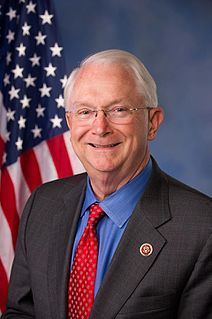A Quote by Franklin Raines
And so the danger for the housing industry is if we see interest rates rise.
Quote Topics
Related Quotes
We create these boom-bust cycles by manipulating the money supply and the interest rates and directing it where it went in. And that is what happened with housing: pushed into housing combination of easy money plus all the regulations, and we created this boom-bust cycle, and corruption, because corruption goes with it, because you don't have the same discipline. So we've got to stop all that.
A higher IOER rate encourages banks to raise the interest rates they charge, putting upward pressure on market interest rates regardless of the level of reserves in the banking sector. While adjusting the IOER rate is an effective way to move market interest rates when reserves are plentiful, federal funds have generally traded below this rate.
If you let interest rates be freed, be set by the free market, they would rise dramatically. There would be a lot of broken furniture on Wall Street. It needs to be broken. The back of the speculative bubble would be broken and we could slowly heal the financial system. That's what I think we need to do but it's never going to happen because there's trillions of asset values dependent on the Fed continuing to suppress, repress interest rates and shovel $85 billion a month of liquidity into the market.































